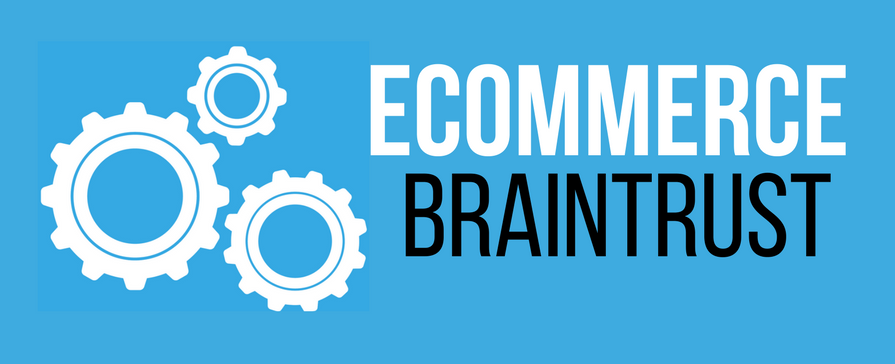What Retailers Think About Instacart (and What That Means for Brands) - Episode 178
INTERVIEW WITH KAREN SHORT
DESCRIPTION
The relationship between grocery retailers in particular and Instacart had not been discussed much until 2021, but today we'll get into some of the recent developments. In this episode, we're joined by Karen Short from Barclays Investment Bank to discuss her team's research findings from Dissecting the Instacart Addiction. We’ll also analyze how the relationship between Instacart and retailers currently works and what needs to change for the two sides to have a productive, sustainable relationship.
Make sure you tune in to find out more!
Karen Short joined Barclays in July 2016 as a Managing Director and Senior Equity Research Analyst following the Food and Staples Retailing industry. Prior to Barclays, she was with Deutsche Bank where she covered the same sector. Karen started her equity research career in 1999 at Lehman Brothers and now has more than 20 years of equity research experience covering the sector.
“Right now Instacart is acting sort of as an intermediary for these retailers’ brands to finding really good return on investment for the Instacart retail media platform that’s working really well.”
KEY TAKEAWAYS
So much of the Instacart experience is managed by the retailer: the assortment, availability, pricing, product content, they are all managed by the retailer, which is pretty unique in the world of online marketplaces.
Instacart offered retailers what then was and still is, the only last-mile viable solution for food retailers.
Food retailers on the conventional grocery side don't have any infrastructure and food retail has always been a laggard in terms of e-com penetration and the pandemic has meaningfully accelerated that, but it's only made Instacart even more important for the infrastructure for all these retailers that don't have any last-mile solution that is in-house.
Walmart only outsources literally the most commoditized component of last-mile which is truly the delivery, but they own the relationship with the customer.
Most retailers are very beholden to Instacart and they can't lose the sales, whether they "lose the customer or share the customer" with Instacart, they can't lose the top line.
If you choose to have the price in your store equal the price on Instacart, typically that retailer is paying Instacart a percent of that total basket. But, retailers have become very entrenched in just the fact that Instacart is providing them with that last-mile delivery and they don't want to lose the top line irrespective of whether or not they're sharing the customer data with Instacart, which in many cases they are, or almost all cases they are sharing the data with Instacart and therefore extricating yourself from Instacart would create a meaningful headwind on the top line as you cycle that extrication.
Not all retailers have a relationship where they lose money on an Instacart order.
If you're paying a membership fee for Instacart, you're now not just looking at food retail, you're looking at a very wide range or a much wider range of retailers that you would pay a membership fee to be able to access.
Right now Instacart is acting sort of as an intermediary for retailers’ brands to finding a really good return on investment for the Instacart retail media platform that's working really well.
It's still a very time-consuming process and so what is a little sadly ironic is that during the greatest period of acceleration in e-com penetration, no food retailer, or almost no food retailer really had a homegrown solution.
Markups on Instacart don't really matter necessarily, all these hidden fees don't matter even if you're a retailer that has chosen to have the same price in-store as you do on Instacart, there's still kind of a hidden fee component.
Instacart needs to continue to reinvent itself, reevaluate its business model, and probably they are not going to go out and sell groceries directly because they'd really be sort of killing the golden goose in terms of their relationship with retailers.
Instacart definitely broadened their offering and they are a turnkey solution for a wide range of retailers.
The thing that Instacart has worked so hard at that's really hard to replicate is that route density and the fact that if you're a smaller retailer, you just can't get that kind of route density to do in-home delivery to make it a viable channel for you.
Instacart as the intermediary is standing between the retail and the customer and that connection with the customer is a long-term asset that is also being sort of eroded over time with Instacart being the intermediary, taking the dollars, and having the contact info.
Instacart has a leg up on a lot of the food retailers because they just have a much more diverse breadth of retailers in general and or eyeballs.
MENTIONED IN THIS EPISODE
Connect with Kiri Masters
Connect with Karen Short
Learn more about Bobsled Marketing
Learn more about Barclays Investment Bank
Instacart for CMOs launches March 10! You can get your paperback shipped starting tomorrow.
As an alternative, the eBook is available now and will be auto-delivered to your Kindle the second it goes live.
